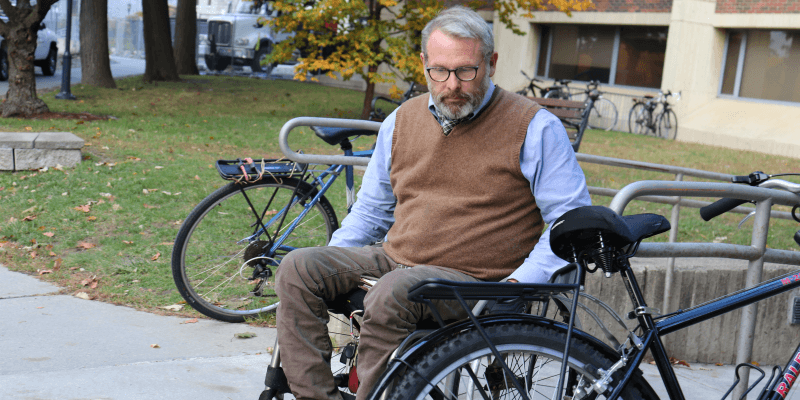An international study of people with spinal cord injury (SCI) seeks to assess quality of life issues and gain a better understanding of how to support the health, functioning and wellbeing of people with chronic SCI.
Professor Reuben Escorpizo is the U.S. coordinator of the International Spinal Cord Injury (InSCI) Community Survey, a four-year project that involves 28 countries and is sponsored by the World Health Organization in collaboration with the International Spinal Cord Society and International Society of Physical and Rehabilitation Medicine. Escorpizo collaborates with The University of Vermont Medical Center, Larner College of Medicine and the Kennedy Krieger International Spinal Cord Injury Center at John Hopkins University, with funding from the UVM Reach Grant, which aims to advance research with broad societal impact in the community and around the world.
With a team of Doctor of Physical Therapy students and community partners including the Northeast Disabled Athletic Association (NDAA) and the Kelly Brush Foundation, Escorpizo recruits and surveys participants throughout the northeast United States.
Survey questions investigate physical and mental wellbeing, mobility and social participation. Participants report on lifestyle factors including their employment status, transportation needs, education, social environment, family support, mood and self-esteem. Evaluation of the data will provide essential information on what society can do to improve the circumstances of people living with SCI, and the results will form the basis for public policies on health care, transportation and infrastructure.
Many of the health and economic consequences associated with spinal cord injury result from barriers in the physical, social and policy environments, said Patrick Standen, president of NDAA and a lecturer on health care ethics for the Department of Rehabilitation and Movement Science. As a person who lives with chronic SCI, Standen participates in the study.
“There are many quality of life issues for people living with disabilities. Access to health care, education, transportation and social activities are key determinants in health outcomes,” Standen said. “For any substantive policy change to occur we need reliable knowledge. We can take the data and see the top issues facing people with spinal cord injuries and create policies that ameliorate those conditions.”
Doctor of Physical Therapy (DPT) student Alexa Crosby ’20 serves as a research assistant on the project, helping with participant recruitment, sending out surveys and planning quarterly meetings for clinicians involved in the study.
“I am learning about what goes into a research study – subject recruitment, follow up, protocol. I see conversations at the international level, and I’m in contact with other groups in the U.S.,” Crosby said. “I’m also learning about spinal cord injuries and potential barriers to daily living and looking for ways to improve quality of life.”
Crosby, Standen and DPT student and research assistant Caroline Buchanan ’20 joined Escorpizo at the 2018 Kelly Brush Ride, a bicycle and hand cycle event that raises funds for adaptive sports equipment for people with spinal cord injuries. The event provided an opportunity to inform people about the study and recruit survey participants. It also gave students a chance to interact with people who live with spinal cord injuries and mobility challenges.
“I thought the experience was fun and enjoyable to support all the participants and volunteers who promote active and healthy lifestyles for people of all abilities, and especially those who have experienced a spinal cord injury,” said Buchanan.
Escorpizo will present preliminary results at a community conference at UVM on June 6.
